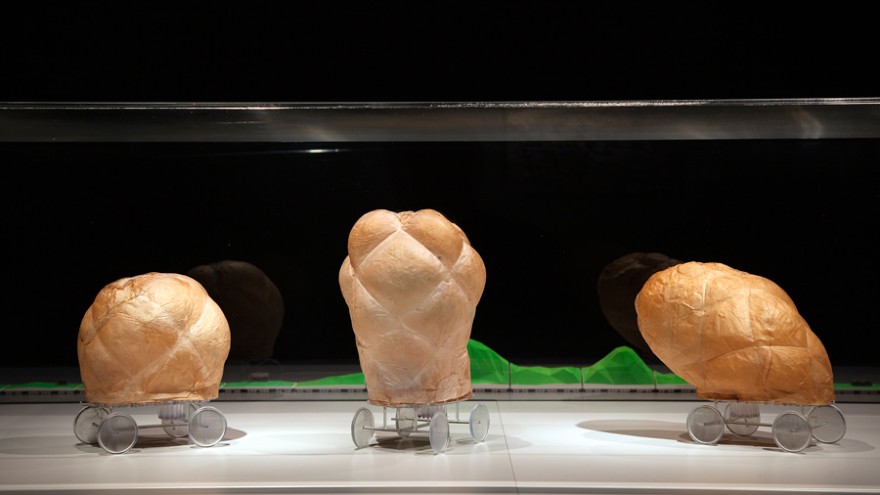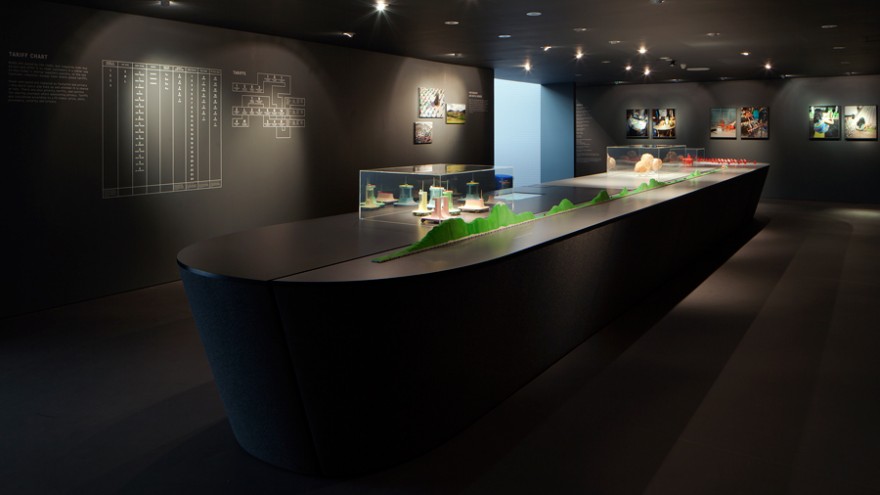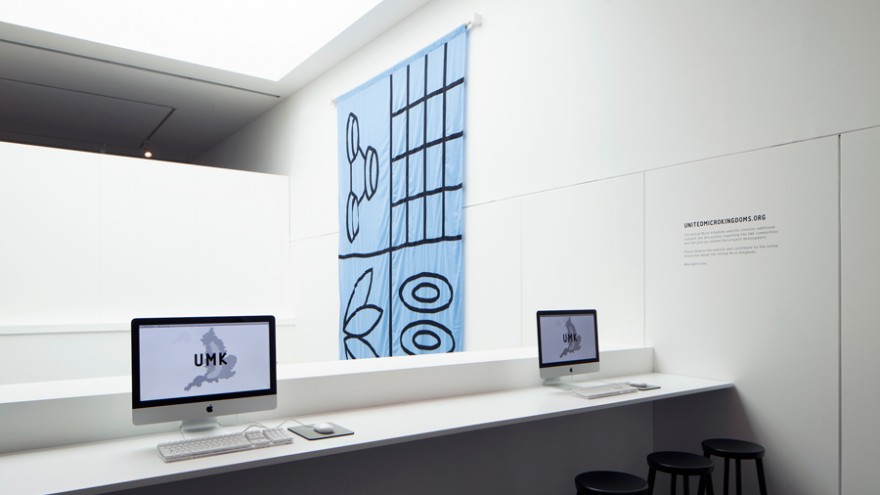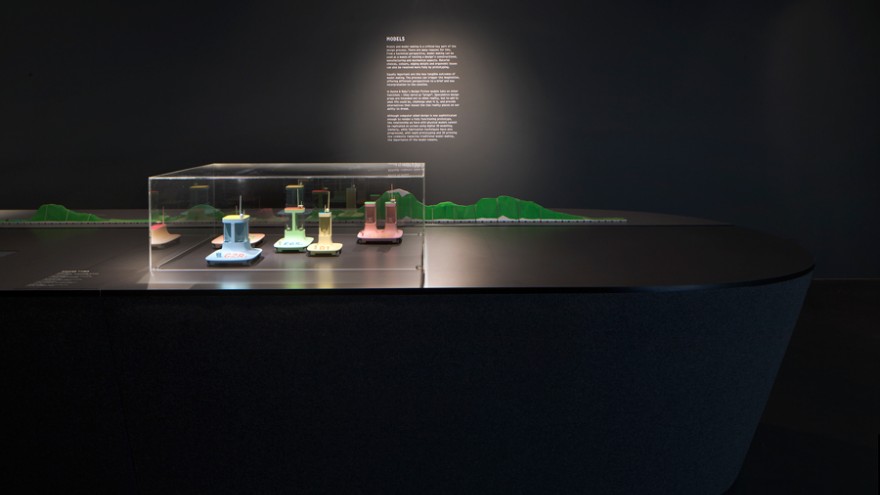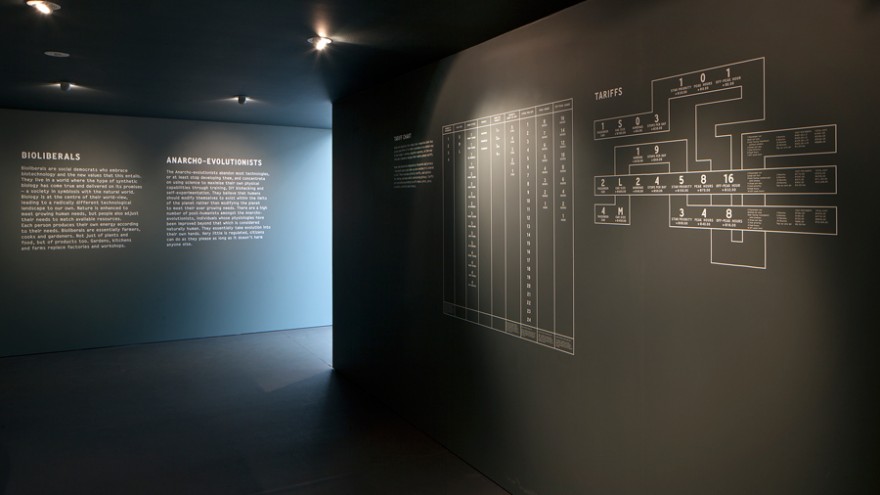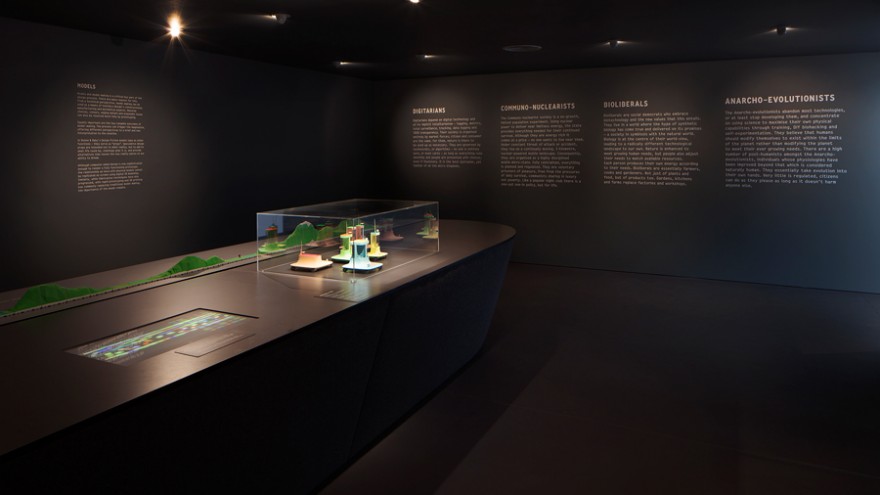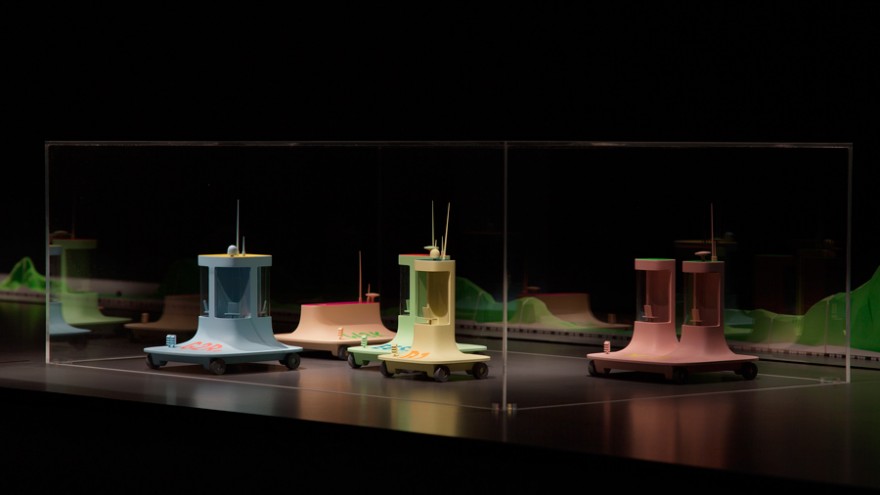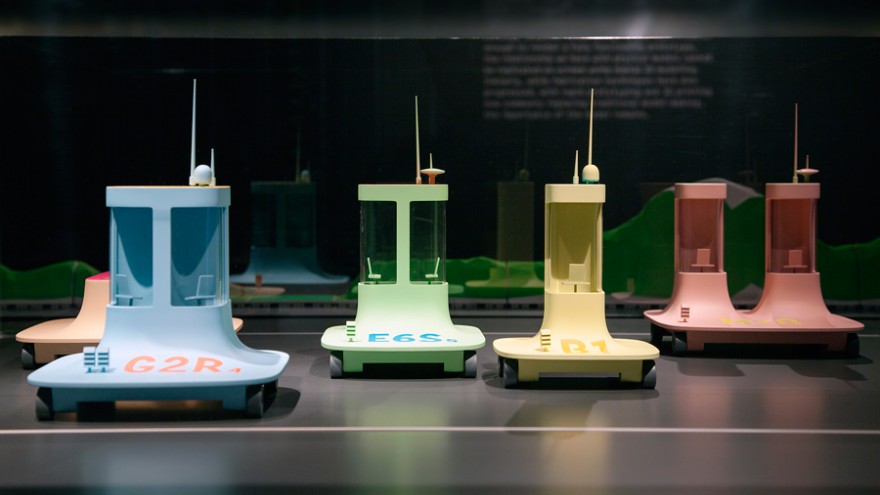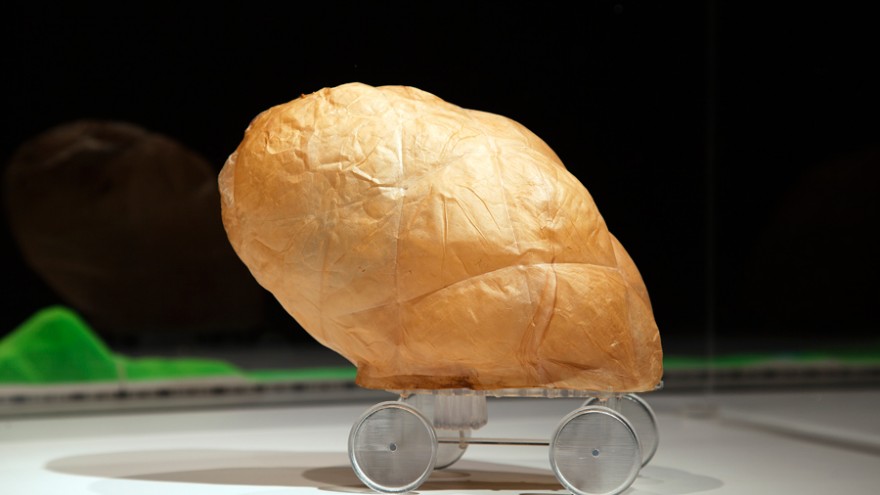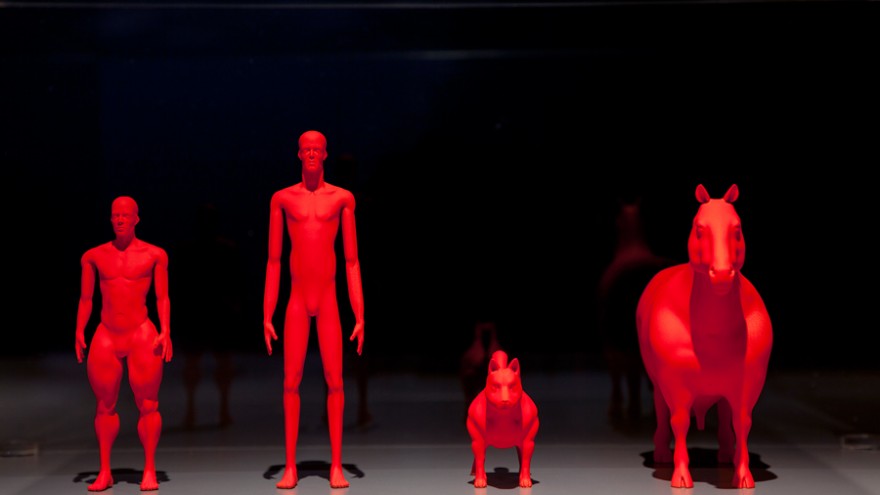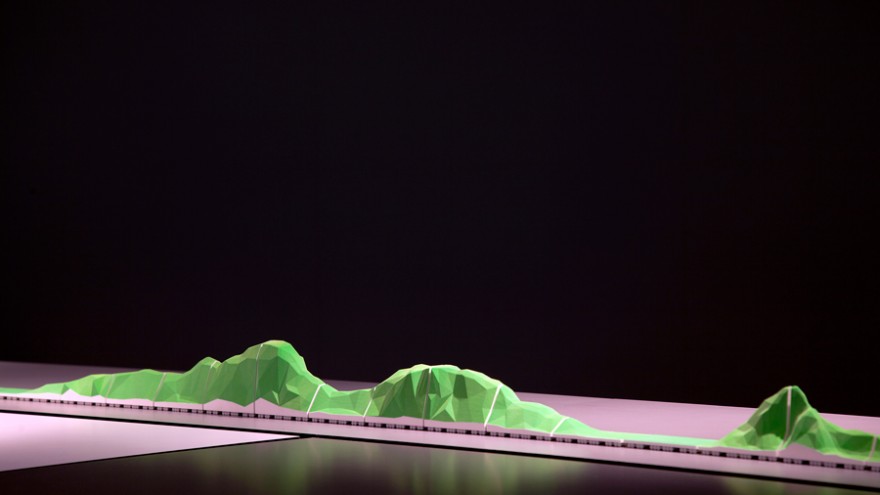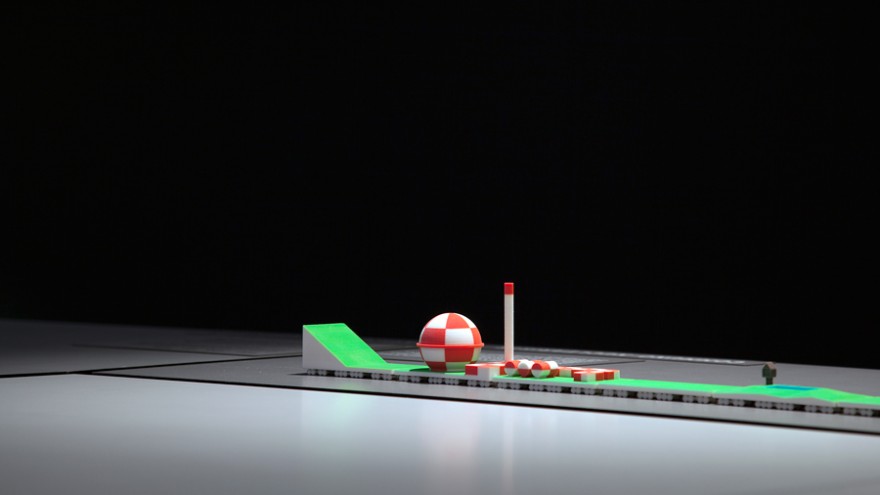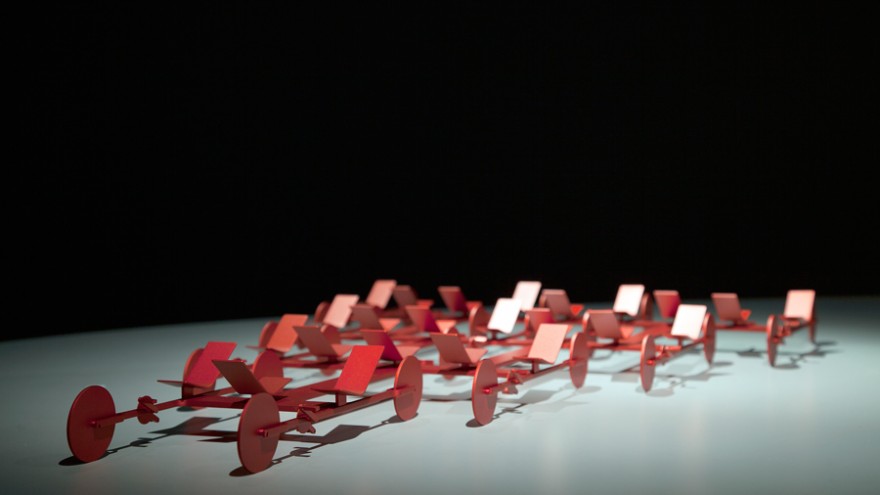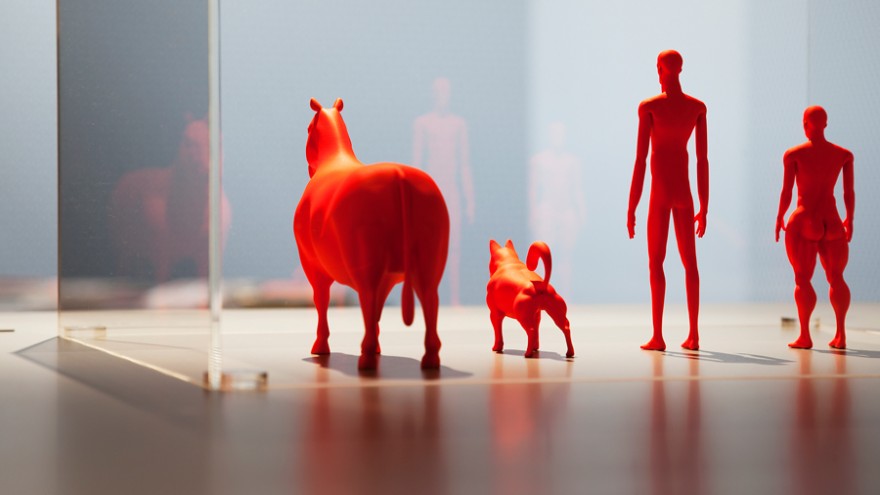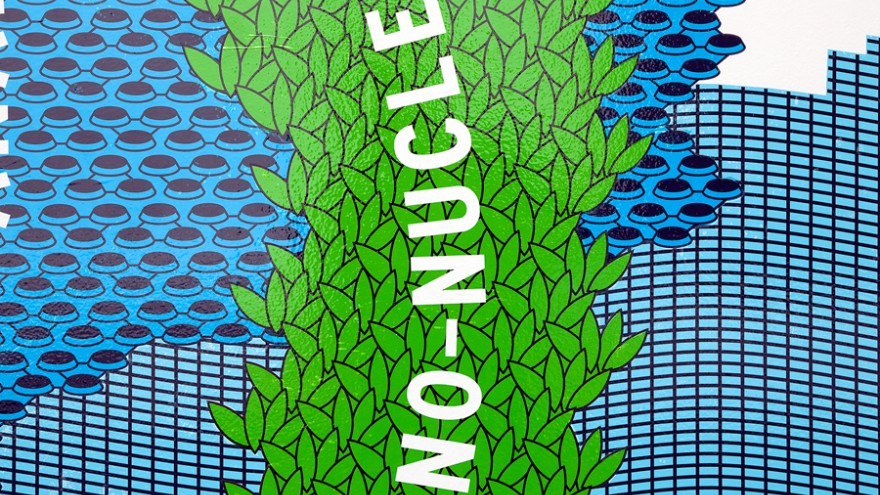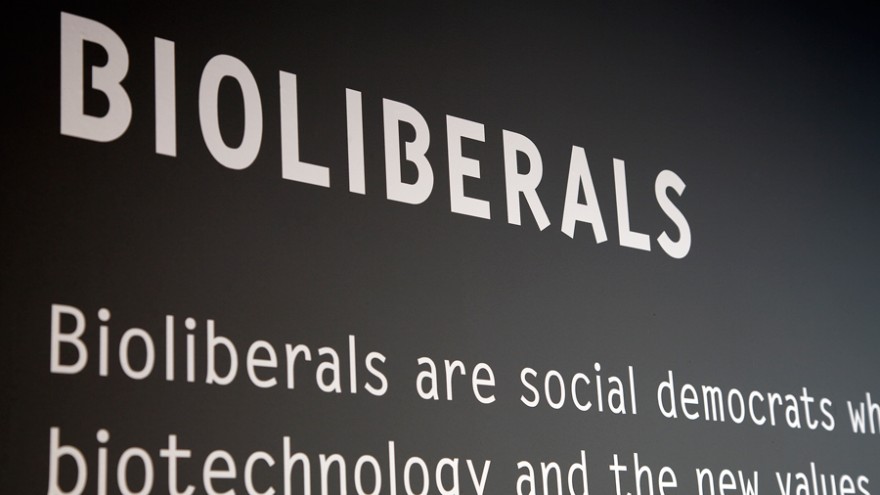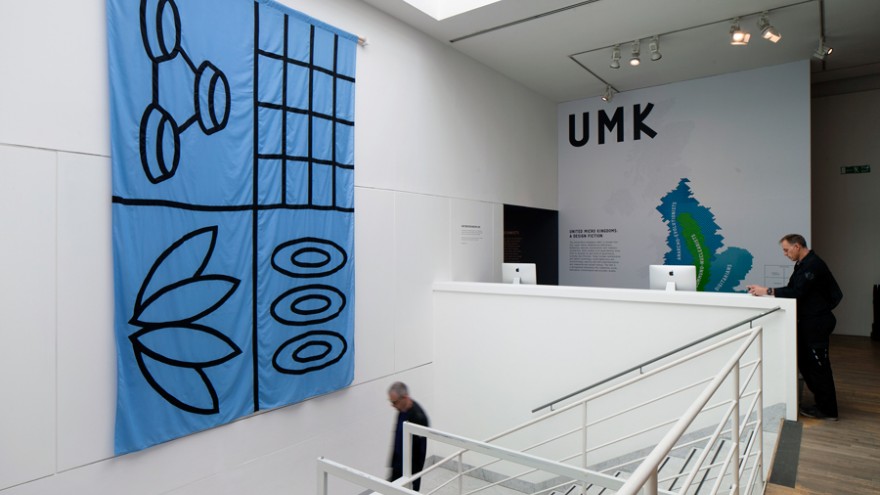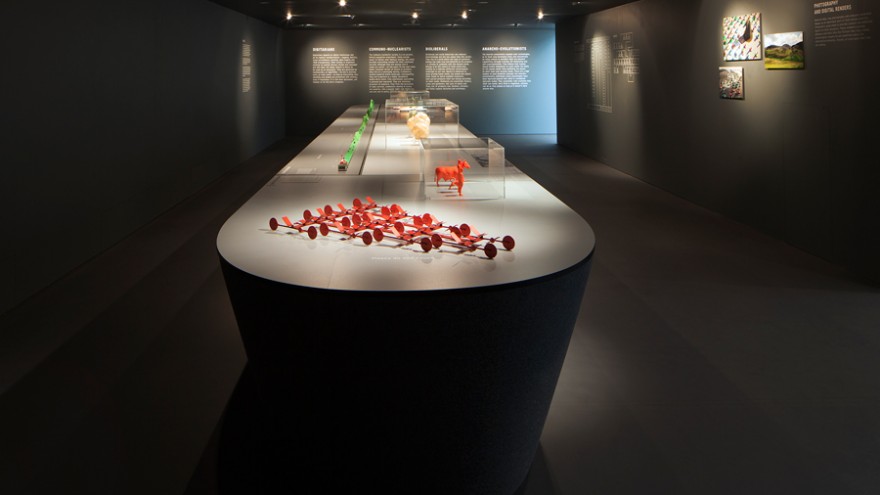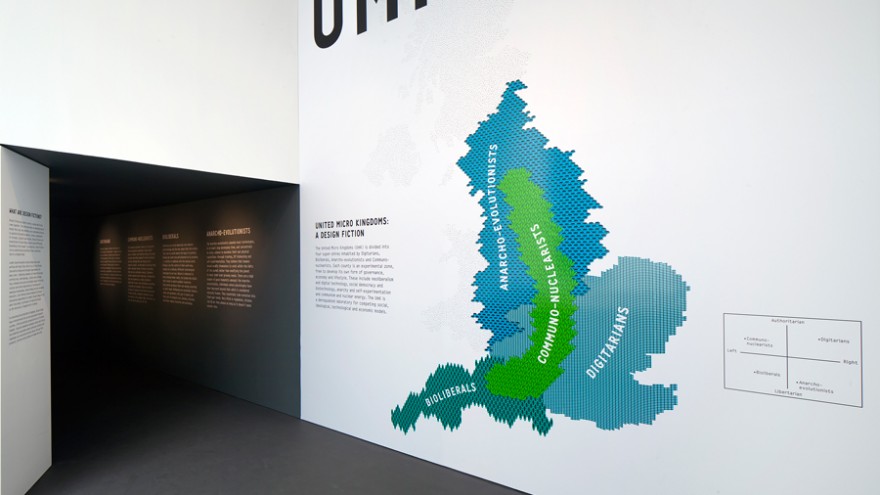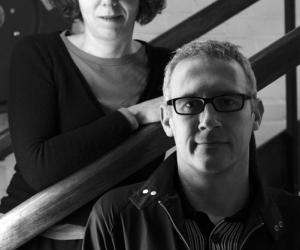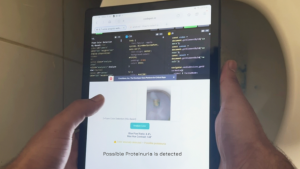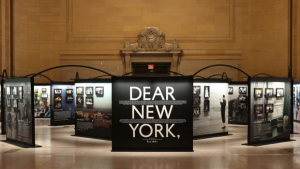Drawing on elements of industrial design, architecture, politics, science and sociology, Dunne and Raby’s latest exhibition, United Micro Kingdoms: A Design Fiction, presents multiple perspectives on a fictional United Kingdom.
On at the Design Museum in London until 26 August 2006, United Micro Kingdoms (UmK) sees England devolved into four self-contained countries, or micro kingdoms.
Each of the micro kingdoms are free to experiment with governance, economy and lifestyle, thus challenging assumptions about how products and services are made and used.
The duo borrow methods from literature and art to use in experiments that apply to the real world. In doing so the exhibition looks at the social, cultural and ethical implications of emerging technologies.
Dunne and Raby’s four micro kingdoms are:
Digitarians
In this imagined kingdom there is a dependence on digital technology. In this society citizens and consumers are the same and there’s an implicit totalitarianism: tagging, metrics, total surveillance, tracking, data logging and 100% transparency.
Communo-Nuclearists
Nuclear power reigns supreme in this society. With the help of the limitless energy provided by the nuclear power, the state provides everything that is needed for survival. The downside is that nobody wants to live near this micro kingdom as they are constantly under threat or attack, resulting in a “continually moving, 3 kilometre, nuclear-powered mobile landscape”.
Anarcho-Evolutionists
Rather than rely on technologies, the Anarcho-Evolutionists use science to maximise their own physical capabilities. Training, biohacking and self-experimentation are some of their preferred methods. “They believe that humans should modify themselves to exist within the limits of the planet, rather than modifying the planet to meet their ever-growing needs.”
Bioliberals
With biology at the centre of their world view, the Bioliberals embrace biotechnology and all it entails. As such, their technological landscape is very different to what is currently known. Each bioliberal produces their own energy, based purely on individual needs. They are farmers, gardeners and cooks – farms, gardens and kitchen are the factories and workshops of this society.


